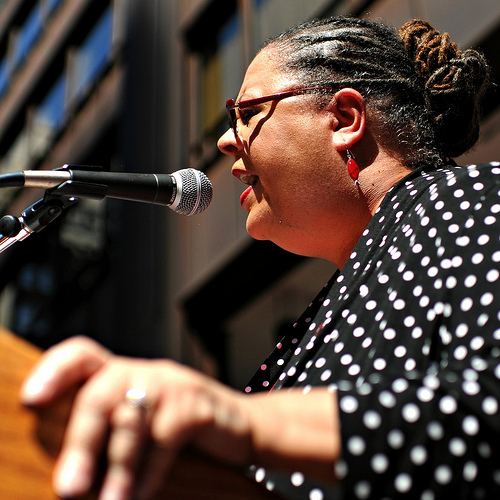Some 2,100 Chicago Public Schools staff received layoff notices in July. The number includes more than 1,000 teachers, or approximately 4 percent of those in the nation’s third-largest district. CPS faces a $1 billion budget deficit this year, and recently announced it would close 49 schools.
“They’ve got a huge deficit they’ve got to attack there. I’m not sure the school district has been managed properly. It’s obviously a local issue,” said state Senator Bill Brady (R-Bloomington), a member of a legislative conference committee working to address a statewide public pension crisis.
Illinois’ teacher pension system is short $52 billion, due to low contributions fueled by high expectations of investment returns that never materialized. Senate Bill 1 would shift pension costs from the cash-strapped state to local districts, deepening the financial difficulties of school districts like Chicago. It passed the Illinois House, but is stuck in the committee.
“We did nothing in the legislature but add to the problem by letting them take pension holidays [that allowed Chicago to skip scheduled pension payments],” Brady said. “Now they’ve got even a bigger problem.”
In 2011, the average Chicago teacher retiring after 30 years received a starting annual pension of $77,496, according to the Illinois Policy Institute (IPI). This teacher will collect more than $2.4 million in taxpayer-funded retirement benefits.
“The State cannot find enough money to pay its own bills, let alone those of the Chicago Public Schools,” said George Clowes, a Heartland Institute education policy advisor.
No Bailout
A fifth of Illinois taxes now go towards public pensions, making the system one of the most indebted in the nation.
“The state doesn’t have any resources [to bail Chicago out], either,” Brady said. “They’re going to have to, like the rest of the school districts around the state, focus on helping themselves, and dealing with that. But there are a whole host of areas where we do want to see them accountable for in terms of operational costs and efficiencies and the other things that are important.”
Most of CPS’s deficit is due to pension holidays the city has taken since 2000 and large employee salary and benefit increases, said Josh Dwyer, director of education reform at the Illinois Policy Institute.
“Under no circumstance should state taxpayers be forced to pay for mistakes made by the city of Chicago and Chicago Public Schools,” he said. Instead, the city should make the “fundamental changes” necessary to restore fiscal sanity, he said.
“CPS needs to sit down with the Chicago Teachers Union and renegotiate their contract,” he said. For example, Illinois teachers are supposed to pay 9 percent of their salary towards their own retirement fund, but in Chicago teachers must only contribute 2 percent, with taxpayers picking up the other 7 percent. Ending this practice would immediately free about $150 million, he said.
Teachers have taken to the streets to protest the layoffs.
Image by Viewminder.





